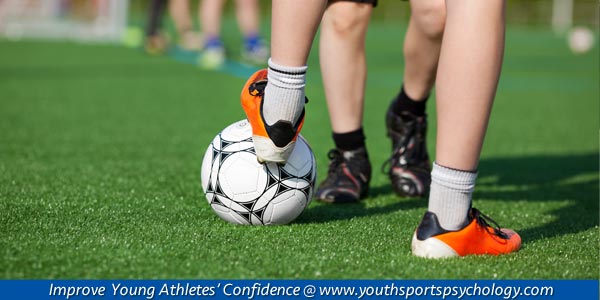Social Approval in Sports Kids
Sports kids worry about what their friends will think when they lose a ball, commit a turnover, or goof up.
And that’s just the beginning of young athletes’ worries.
They worry about what coaches and friends will think when their parents yell on the sidelines. They worry about impressing relatives who come to games. The list of worries goes on and on.
Here’s the problem:
When kids worry about what others think of them, their confidence suffers.
Why?
They’re not thinking about what they should be doing to play or perform well, right now. In fact, they’re often focusing on thoughts that feed feelings of doubt—a real confidence buster!
“My friends are going to think I always commit turnovers,” they might tell themselves. “Coach thinks I always start out badly.”
What’s more, when kids worry about what others think of them, they tend to play it safe. They avoid taking risks. As we’ve said many times, this is a real mental game no-no!
Sports kids need to take risks in order to grow as athletes!
So how do you help kids who worry about what everyone thinks of them?
First of all, you need to help kids identify when they’re worried about what others think.
Help them identify who they worry about and what they worry about. For example, your kids may only worry about what coaches think of them during games.
Or they may worry about what the kids in advanced math class are thinking of them when they pass the gym on the way to their class.
Next, help them see themselves as winners.
Confident kids have positive views of themselves as athletes and use positive words and phrases to describe themselves. As sports parents and coaches, it’s important for you to help your sports kids develop a positive self-image.
We suggest you avoid labeling your kids in a negative way.
Avoid saying things like, “You always choke up at the beginning of the game.”
In addition, help kids replace their worries with more positive things. Instead of telling themselves, “I’m going to look like a fool in front of my friends,” they need to learn to tell themselves, “I’m a good team player, I’m great at defense, and I work really hard.”
One of the best things parents can so is help their kids get their minds off of shortcomings and help them focus on their positive qualities.
Related Articles on Kids’ Mental Game:
- Help Sports Kids Overcome Social Approval
- How to Help Young Athletes Overcome Social Approval
- Sports Parents: Do Your Kids Want Your Approval?
*Subscribe to The Sports Psychology Podcast on iTunes
*Subscribe to The Sports Psychology Podcast on Spotify
The Composed Sports Kid

“The Composed Sports Kid” audio and workbook digital download program for young athletes and their parents or coach helps kids cope with frustration and anger in sports. Help your sports kids learn how to manage expectations and let go of mistakes so they can keep their head in the game.
The Composed Sports Kid system is really two programs in one–one program to train parents and coaches how to help their kids practice composure, and one program that teaches young athletes–ages 6 to 13–how to improve composure, let go of mistakes quickly, have more self-acceptance, and thus enjoy sports more!

